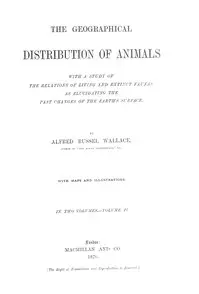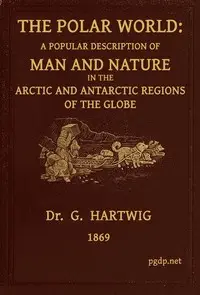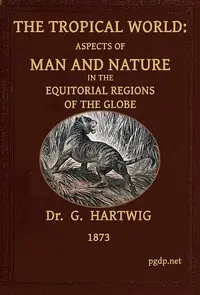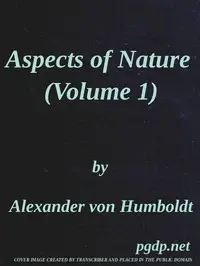"Aspects of Nature, in Different Lands and Different Climates" (Vol. 2) by Alexander von Humboldt is a scientific exploration of life's amazing diversity across Earth's varied landscapes. Humboldt's writing focuses on the intricate relationships between living things and their surroundings, drawing on detailed observations of plants and animals in different climates. A key theme is the persistence of life everywhere, even in harsh environments like mountaintops and icy regions, examining the survival of creatures as tiny as wind-blown microbes and as large as birds at high altitudes. His work creates a foundation for studying how nature shapes human societies and cultures, emphasizing the deep connection between the world around us and the evolution of human life.
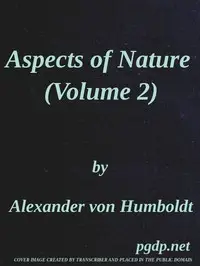
Aspects of nature, in different lands and different climates (Vol. 2 of 2) with scientific elucidations
By Alexander von Humboldt
Venture into a world where vibrant life flourishes in the face of extreme conditions, revealing the profound connection between nature, geography, and human existence.
Summary
About the AuthorFriedrich Wilhelm Heinrich Alexander von Humboldt was a German polymath, geographer, naturalist, explorer, and proponent of Romantic philosophy and science. He was the younger brother of the Prussian minister, philosopher, and linguist Wilhelm von Humboldt (1767–1835). Humboldt's quantitative work on botanical geography laid the foundation for the field of biogeography, while his advocacy of long-term systematic geophysical measurement pioneered modern geomagnetic and meteorological monitoring. Humboldt and Carl Ritter are both regarded as the founders of modern geography as they established it as an independent scientific discipline.
Friedrich Wilhelm Heinrich Alexander von Humboldt was a German polymath, geographer, naturalist, explorer, and proponent of Romantic philosophy and science. He was the younger brother of the Prussian minister, philosopher, and linguist Wilhelm von Humboldt (1767–1835). Humboldt's quantitative work on botanical geography laid the foundation for the field of biogeography, while his advocacy of long-term systematic geophysical measurement pioneered modern geomagnetic and meteorological monitoring. Humboldt and Carl Ritter are both regarded as the founders of modern geography as they established it as an independent scientific discipline.


